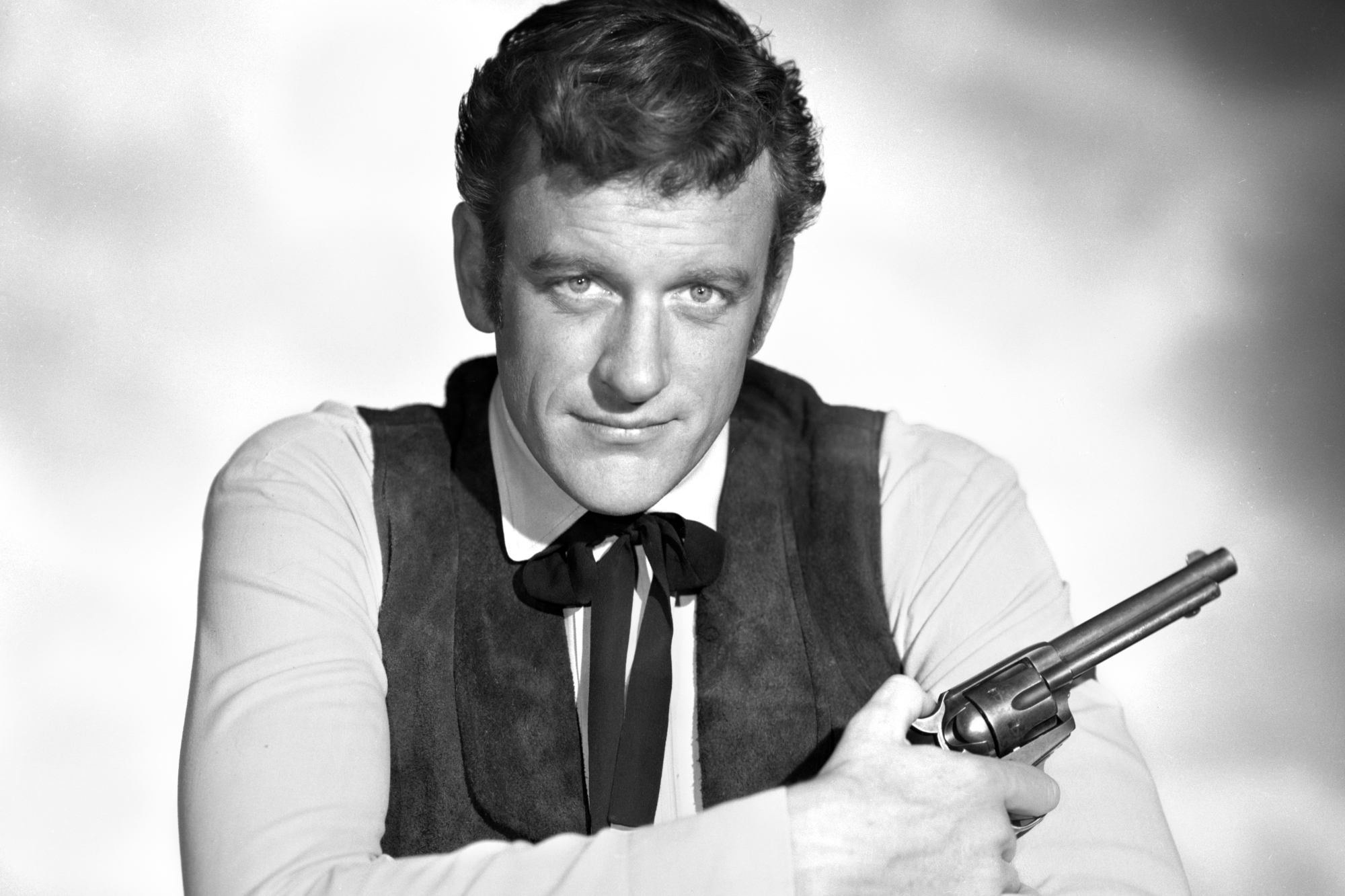It might be difficult to come up with a specific idea around what “Gunsmoke” was actually all about besides being a Western TV show.
James Arness, though, has his own thoughts on the matter. He looked upon other Western shows on TV at the time as a bit childlike and fun.
“I think you could say that compared to most of the Westerns that had been, up to that point in time — no criticism of them, but they were more or less — I wouldn’t say ‘kid shows,’” Arness said in a 2006 interview. “But they were more or less kind of ‘fun-time’ Westerns, whereas ‘Gunsmoke’ they dubbed the ‘adult’ Western.”
‘Gunsmoke’ Provided TV Viewers With Grown-Up Western To Watch

Arness, who portrayed Marshal Matt Dillon for 20 seasons on the CBS western, liked the idea of having a grown-up Western TV show.
“Actually, I think it was the premise of it,” he said. “They told stories of real life and real characters, and stories that we hoped the audience would become involved in. That kind of approach. And, evidently, they did.”
The show surrounded Arness with a strong supporting cast. The longest-tenured supporting cast included Amanda Blake as Miss Kitty, Milburn Stone as Doc, and Ken Curtis as Festus. “Gunsmoke” also became a launching pad for the careers of Dennis Weaver, who played Chester, and Burt Reynolds, who played blacksmith Quint Asper.
Arness, whose brother Peter Graves also had TV success with “Mission: Impossible” also on CBS, died on June 3, 2011, at 88 years old.
Arness Said There Was One Trait Burt Reynolds Couldn’t Bring To Show

While Arness and Reynolds worked together for three seasons, even Marshal Matt Dillon himself could see Quint had something special to bring on the show.
Yet Reynolds had to hold off bringing his humorous side to “Gunsmoke” through his time there.
The role kept Reynolds from using one of his “greatest skills” as an actor, Arness said in an interview with the Archive of American Television.
” … you could tell very quickly that Burt was a guy who had a great presence,” Arness said.
“Gunsmoke” was a dramatic show, so Reynolds had to play things straight.
“And, of course, as we’ve learned in later years, one of his great skills is his comedic skill,” Arness said. “Of course, he was not able to bring that to the character at all. He had to be a very serious guy, actually, and he was playing a form of racial discrimination … He had to play that, so he couldn’t really use his actually strongest point which was his marvelous sense of humor.”
